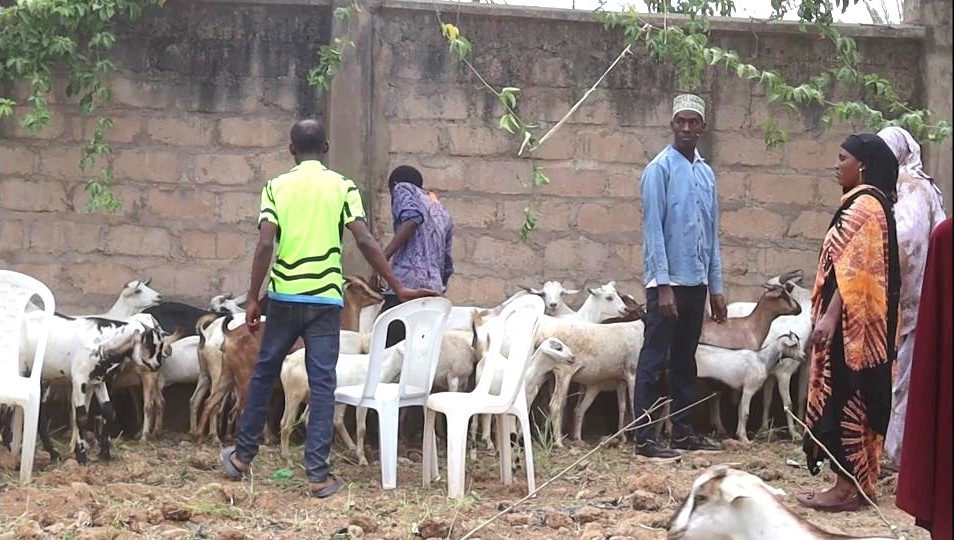
 Herders tending to goats in Marsabit County
Herders tending to goats in Marsabit CountyThe National Veterinary Board has expressed concerns over the rising cases of pastoralists buying cattle medicine over the counter and treating herds themselves.
Benson Kibore, the director of compliance and livestock market surveillance, said the trend risks increasing antimicrobial resistance in people consuming animal products.
Others, he said, seek the services of unlicensed individuals when their herds are unwell, and who have no professional skills to treat them.
Inspecting pastoralist areas in Northern Kenya, Kibore said the board is keen on weeding out quacks and agrovets selling drugs directly to farmers.
“These habits are exposing many unsuspecting Kenyans to anti-microbial resistance which is a pandemic waiting to happen,” he said.
The government, he said, will not allow herders to poison themselves through improper and unregulated use of animal medicines.
He said such practices have also hindered the access of local animal products, such as camel milk, into the international market.
“This is a public health issue. It’s why we’re restricting access to medicines, and anybody who handles them outside the confines of what’s allowed in law will be dealt with. This includes outlets that sell drugs to farmers directly,” Kibore said.
He said once an animal in unwell, a farmer should contact a veterinary officer, who is then required to take samples to determine what the animal is ailing from.
 Benson Kibore, the Director of Compliance and Livestock Market Surveillance under the National Veterinary Board during an inspection exercise in Marsabit.
Benson Kibore, the Director of Compliance and Livestock Market Surveillance under the National Veterinary Board during an inspection exercise in Marsabit.This, he said, makes it easier to detect outbreaks and control them before they spread too far and affect many animals.
But in cases where farmers and herders treat their animals themselves, such outbreaks catch the attention of the government too late and are difficult to manage.
“Viral diseases such as foot and mouth require to be managed at the population level. A professional would cascade the issue to the necessary authorities once they spot a few cases,” he said.
Further, improper treatment of the diseases makes them resistant to treatment, while increasing microbial resistance in those who unknowingly consume their products.
“It’s projected that by 2035, we will be losing 10 million people to antimicrobial resistance annually in the world. This is a huge issue that requires to be addressed urgently, and that is why we are undertaking this exercise,” he said.
Infiltration of quacks in the sector, he said, has led to a
drop in milk production and lowered the quality of meat and milk.
Mohamed Jillo, a veterinarian in Marsabit county, challenged the government to consider dispatching mobile veterinary officers to serve the pastoralists who move from one area to another and reduce instances of the herders treating their herds.
“Marsabit is one of the marginalised counties in the country and extension officers are not available,” he said.
"Illiteracy is also very high and the herders may not understand why the government doesn’t want them to treat their cattle."
He said creating awareness would ensure the pastoralists understand that the government’s efforts are geared towards safeguarding them.
Esther Mburu, another veterinarian, said farmers should not buy injectable drugs over the counter and that anybody who sells such drugs to them should be prosecuted.











